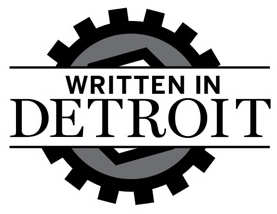What happens when your industry, be it digital technology, real estate, or manufacturing, is just going through the motions? Or worse, nothing’s happening. You may have a great idea for an app, a residential project, or a sleek handheld translator, but for whatever reason, getting from Point A (present) to Point B (future) is harder than finding a New York taxi in the rain.
What’s the solution? How do you jumpstart an idea, a product, or a totally radical venture? It’s actually simpler than you might think. First, set a straightforward plan. Where do you want to go, and how are you going to get there? Next, execute the plan.
It won’t happen overnight. Still, with your plan in hand, you’ve jumpstarted your engine to the future. It may take years, but slowly, over time, things will change. After all, Thomas Edison and his team undertook hundreds of experiments before they developed the first workable incandescent light bulb in 1879. Three years later, Edison established a small power plant capable of generating 110 volts to some 60 customers in Manhattan.
Yes, you read that right, 110 volts. Edison developed numerous other innovations, including the phonograph, stock ticker, carbon microphone, and the first industrial research laboratory. From a man who would know, Edison’s most famous line speaks volumes: “Genius is 1 percent inspiration, 99 percent perspiration.”
A century ago, it took years to execute a plan, as nearly everything had to be built from scratch. Yet today, with digital tools, the Internet, and infrastructure, ideas become reality much more rapidly.
Consider, in 1990, when I started writing for The Detroit News, downtown Detroit was a place where tumbleweeds blew down the streets. Writing for the newspaper’s business staff, I started covering the small incremental changes that were popping up in the city. A new restaurant here, a nightclub there, and, once in a while, a major project like the Detroit Opera House, to help stitch things together.
Following a lot of baby steps, big things started to happen. In the spring of 1996, General Motors acquired the city’s largest mixed-use office project, the Renaissance Center, for its world headquarters. Over the previous six years, my editors never really curtailed my coverage of downtown Detroit, though they did drop hints that all the action was in the suburbs. But after GM made its move, the spigot was wide open. “We want every story you can get on downtown Detroit, kid.” It was a change in fortune I will never forget.
Next up, the software company, Compuware Corp., built a headquarters in the central business district, moving some 4,000 employees from the suburbs. Now there were two big fish downtown. Next up: Two sports stadiums, three casinos, loft housing, a restoration of the Detroit riverfront, office renovation projects, and quite a number of restaurants.
The only thing missing was merchants. You can’t argue with retailers for coming late to the game. They need foot traffic to survive, and thousands of new office workers and residents were yet to come. Enter Dan Gilbert, founder and chairman of Quicken Loans Inc., and his team of 7,000-plus workers. As the world’s largest online mortgage company, Gilbert had a lot of young workers.
As he watched, listened, and conducted employee surveys, Gilbert observed that his work force would be happier, more productive, and more loyal if they worked in a cool, urban environment. So Gilbert signed a lease in the Compuware Building and started to move the bulk of his employees to Detroit.
To make room for everyone, he acquired more than 20 downtown buildings, which
collectively offer 3 million square feet of space. Other companies like Blue
Cross Blue Shield of Michigan joined him. The result was more people on the
streets, more entertainment activity, and a seriously low vacancy rate for
downtown residences.
But with all that, the merchants were still hanging out on the sidelines. To
get them in the game, Gilbert developed what he calls the “Big Bang.” Rather
than wait for the retail market to develop organically, Gilbert hired the best
architects and urban planners the world offered, set down a plan, and then
executed the plan.
The result, from a major announcement in late March, was Opportunity Detroit. The centerpiece of the plan is street activation. It wasn’t something that would happen in two or three years. No, the plan is already in motion. By activating the streets this summer with sidewalk cafés, pop-up stores, artist districts, food trucks, concerts, movie screenings, and a farmer’s market, Gilbert and his team are betting they can jumpstart the next revolution — a bustling downtown district that will be the envy of other cities.
A bold plan, to be sure. But without a plan, Gilbert and his employees would still be working in the suburbs, perhaps with a typewriter on every desk rather than a sleek computer, a telephone, and overhead lighting. Had not Edison jumpstarted the modern electrical industry, thereby giving entrepreneurs like Gilbert the power to transform an entire city, Detroit, and the world, would be a very boring and predictable realm.


